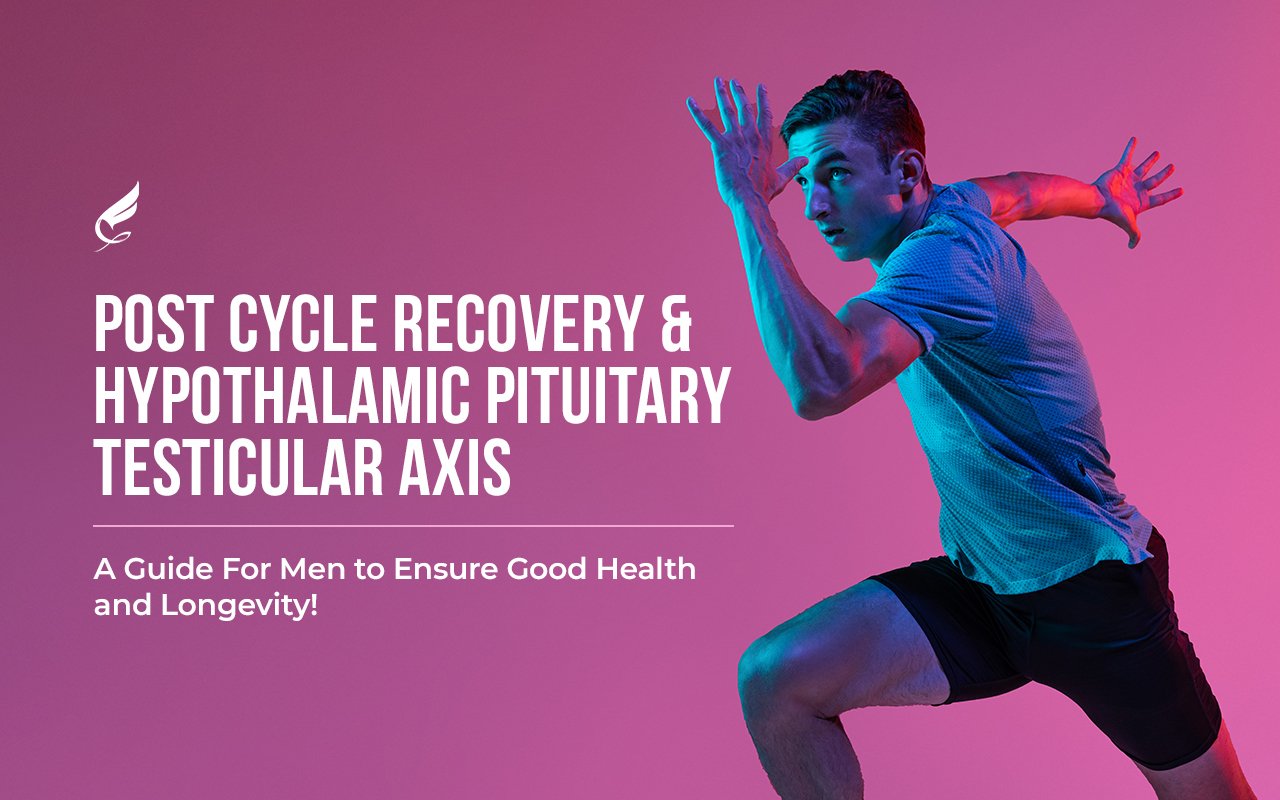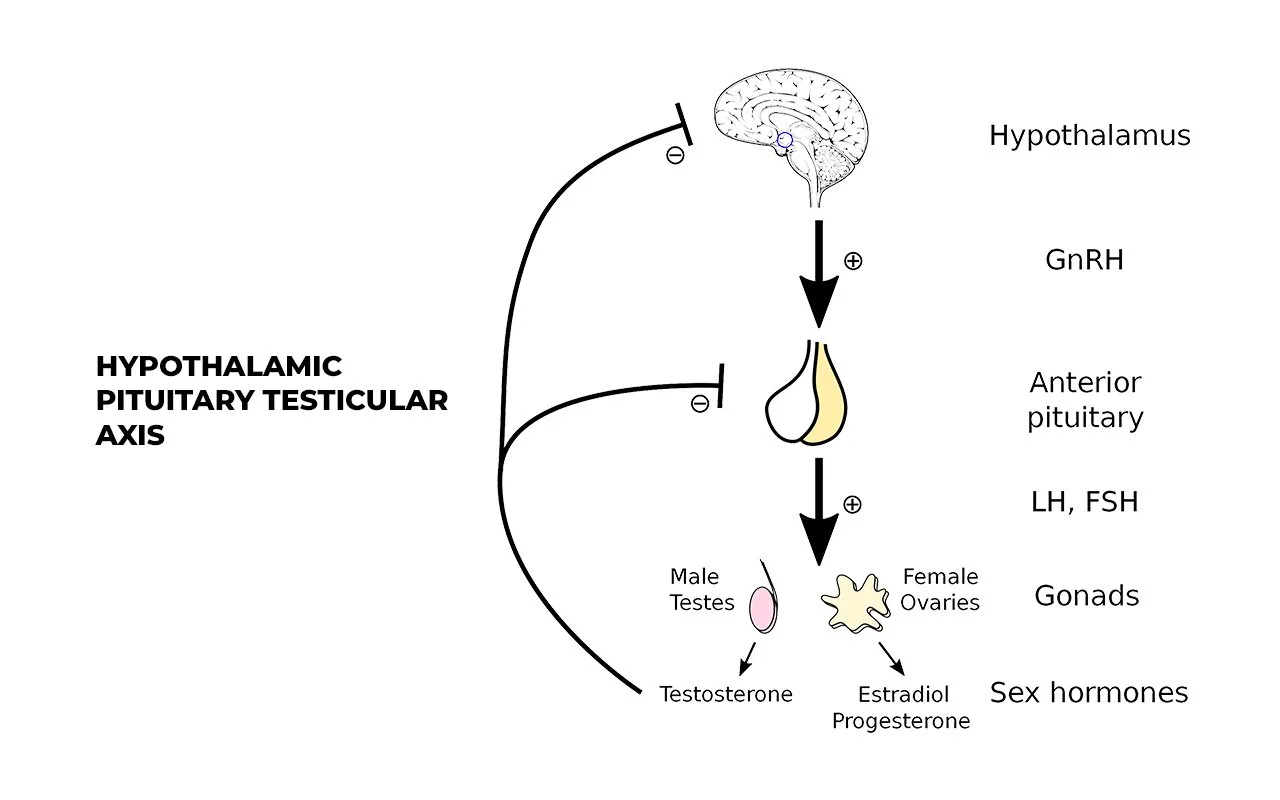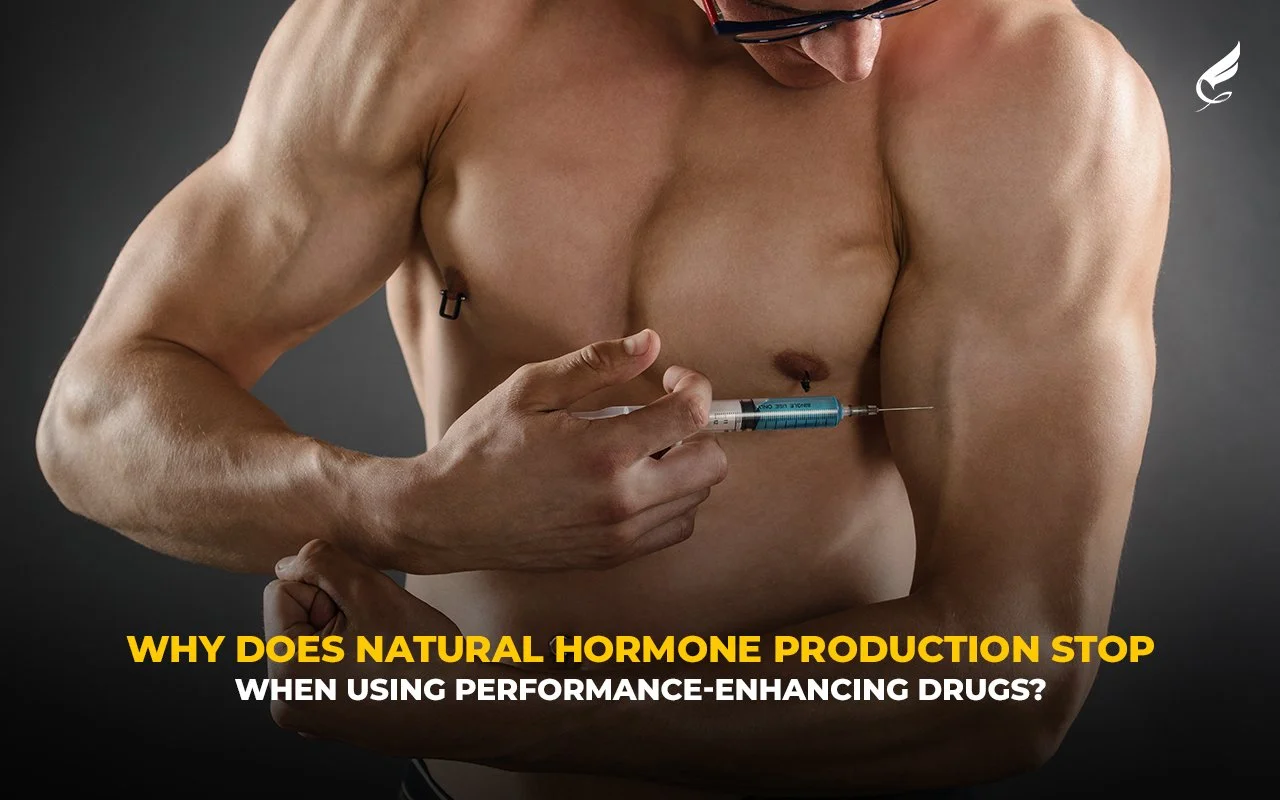Post Cycle Recovery & Hypothalamic Pituitary Testicular Axis: A Guide For Men to Ensure Good Health and Longevity!
In the world of bodybuilding and fitness, the use of performance-enhancing drugs (PEDs) is a controversial topic. While some athletes and bodybuilders turn to PEDs to enhance their performance and physique, others choose to stay natural, prioritizing long-term health and well-being. For those who have used PEDs, post-cycle therapy (PCT) is a crucial step in restoring the body's natural hormone production and mitigating potential side effects. This blog post delves into the science behind PCT, exploring its importance and key components for a successful recovery.
What is Post Cycle Recovery (PCT)?
Post-cycle therapy (PCT) is a specific regimen designed to help the body recover from a cycle of anabolic-androgenic steroids or other performance-enhancing drugs. It typically involves medications and supplements that aim to restore the body's natural hormone production, particularly testosterone, which is often suppressed during PED use.
The Hypothalamic Pituitary Testicular Axis (HPA Axis)
The hypothalamic-pituitary-testicular axis (HPT axis) is a complex hormonal feedback loop regulating men's testosterone production. The hypothalamus releases gonadotropin-releasing hormone (GnRH), which stimulates the pituitary gland to release luteinizing hormone (LH) and follicle-stimulating hormone (FSH). LH then signals the testes to produce testosterone.
What is the Impact of Anabolic Androgenic Steroids and PEDs on Natural Hormone Production
Anabolic-androgenic steroids and other PEDs can disrupt the HPT axis, leading to a decrease in natural testosterone production. This is because these substances mimic the effects of testosterone, signaling the body to reduce its own production.
Why Does Natural Hormone Production Stop When Using Performance-Enhancing Drugs?
When you use performance-enhancing drugs, your body senses an abundance of androgens (male hormones), leading to a decrease in the production of GnRH, LH, and FSH. This, in turn, reduces the natural production of testosterone.
Let's explain this in a bit more detail:
The use of PEDs can lead to a state of hormonal imbalance, where the body's natural testosterone production is suppressed. This can have various side effects, including:
Reduced libido
Erectile dysfunction
Mood swings
Fatigue
Muscle loss
How to Do Post Cycle Recovery (PCT) The Right Way?
PCT aims to restore the body's natural hormone production and mitigate these side effects. It typically involves a combination of medications and supplements, including:
Selective Estrogen Receptor Modulators (SERMs): These medications, such as clomiphene citrate (Clomid) and tamoxifen citrate (Nolvadex), can help stimulate the production of LH and FSH, thereby increasing testosterone levels.
Aromatase Inhibitors (AIs): These medications, such as anastrozole (Arimidex) and letrozole (Femara), can help reduce estrogen levels, which may become elevated during PED use.
Human Chorionic Gonadotropin (hCG): This hormone can help stimulate the testes to produce testosterone and may be used in conjunction with SERMs.
Duration of Post-Cycle Therapy:
The duration of PCT typically ranges from 4 to 8 weeks, depending on the type and duration of PED use and individual factors.
The Importance of Monitoring and Blood Work:
Monitoring your progress during PCT is crucial to ensure its effectiveness and adjust the regimen as needed. Blood work can help assess hormone levels and identify any potential imbalances.
Recommended Blood Panel for Post Cycle Therapy
A comprehensive blood panel for PCT may include:
Complete Blood Count (CBC)
Lipid Profile: Cholesterol, Triglyceride, HDL, LDL, VLDL, HDL/Cholesterol Ratio
Alanine Aminotransferase (A.LT/GP.T) & Aspartate Aminotransferase (AST/GOT)
Glucose Fasting & Creatinine
Uric Acid, Sodium, Potassium & Chloride
Testosterone, both FREE and Total
Prolactin
Estradiol (E2)
Dehydroepiandrosterone Sulfate (DHEA-S)
Sex Hormone Binding Globulin
Thyroid Stimulating Hormone
Thyroid Stimulating Hormone and Post-Cycle Recovery
PED use can also affect thyroid-stimulating hormone (TSH) levels. Monitoring TSH levels during PCT can help assess thyroid function and ensure optimal recovery.
Conclusion
Post-cycle therapy (PCT) is a crucial step for individuals who have used performance-enhancing drugs. It helps restore the body's natural hormone production, mitigate potential side effects, and support long-term health and well-being. By understanding the science behind PCT and implementing a well-designed recovery plan, you can take control of your recovery journey and ensure a smoother transition back to a natural hormonal balance.
To find out more about our services, check out:
To learn more about all things training and nutrition, check out some of our science-based blogs:
#Stay Strong
#BeFortius






